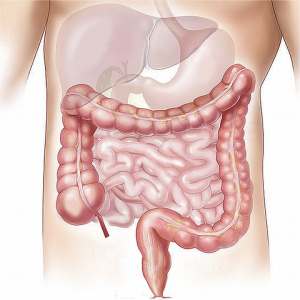Featured Products
- In-Stock Tumor Cell Lines
- Human Orbital Fibroblasts
- Human Microglia
- Human Pulmonary Alveolar Epithelial Cells
- Human Colonic Fibroblasts
- Human Type II Alveolar Epithelial Cells
- Human Valvular Interstitial Cells
- Human Thyroid Epithelial Cells
- C57BL/6 Mouse Dermal Fibroblasts
- Human Alveolar Macrophages
- Human Dermal Fibroblasts, Adult
- Human Lung Fibroblasts, Adult
- Human Retinal Muller Cells
- Human Articular Chondrocytes
- Human Retinal Pigment Epithelial Cells
- Human Pancreatic Islets of Langerhans Cells
- Human Kidney Podocyte Cells
- Human Renal Proximal Tubule Cells
Primary Cells
Explore Products



 HCA-7 is a human colorectal adenocarcinoma cell line derived from a 58-year-old female patient with moderately differentiated mucinous carcinoma of the colon. This adherent cell line exhibits epithelial-like morphology and forms polarized monolayers in culture, closely resembling the morphology and functional characteristics of colonic epithelium. A unique feature of HCA-7 is its ability to develop polarized epithelial layers. The cell line expresses high levels of cyclooxygenase-2 (COX-2) and microsomal prostaglandin E synthase-1 (mPGES-1), enzymes involved in prostaglandin biosynthesis and inflammation. HCA-7 demonstrates strong tumorigenicity in xenograft models, forming tumors when inoculated subcutaneously into nude mice. It is widely used in studies focused on colon cancer progression, drug resistance, and anticancer therapeutic screening.
HCA-7 is a human colorectal adenocarcinoma cell line derived from a 58-year-old female patient with moderately differentiated mucinous carcinoma of the colon. This adherent cell line exhibits epithelial-like morphology and forms polarized monolayers in culture, closely resembling the morphology and functional characteristics of colonic epithelium. A unique feature of HCA-7 is its ability to develop polarized epithelial layers. The cell line expresses high levels of cyclooxygenase-2 (COX-2) and microsomal prostaglandin E synthase-1 (mPGES-1), enzymes involved in prostaglandin biosynthesis and inflammation. HCA-7 demonstrates strong tumorigenicity in xenograft models, forming tumors when inoculated subcutaneously into nude mice. It is widely used in studies focused on colon cancer progression, drug resistance, and anticancer therapeutic screening.